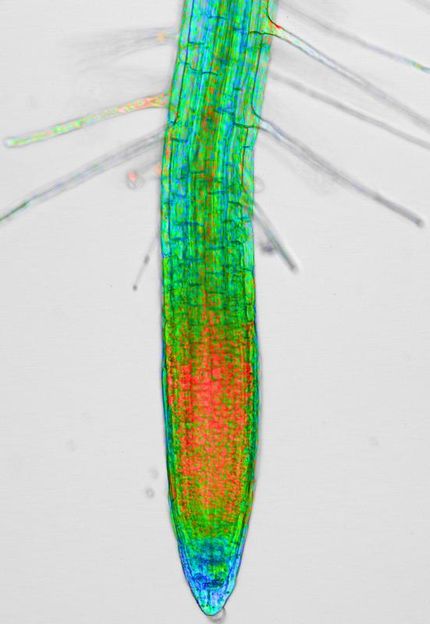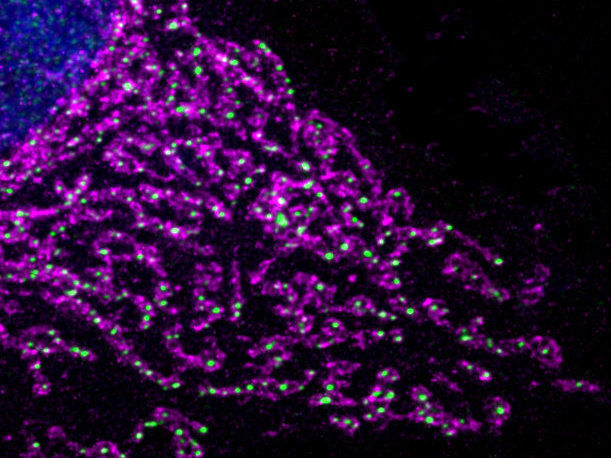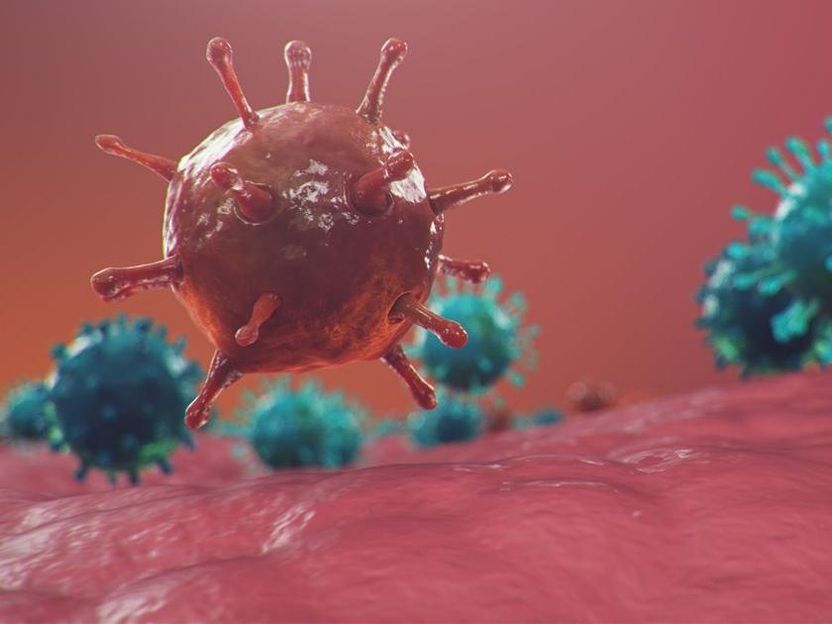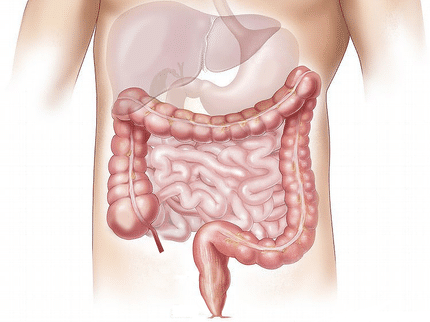Researchers at the University of Bonn boost fat-burning
Significantly overweight people have a particularly large number of white fat cells but in contrast, they lack brown fat cells. The white cells are responsible for bothersome fat deposits; conversely, the brown cells "burn off" unwanted pounds by releasing the energy stored in them in the form of heat. Prof. Dr. Alexander Pfeifer from the Institute of Pharmacology and Toxicology at the University of Bonn has spent years researching how harmful white fat cells can be converted into desirable brown fat cells.
"We are looking for targets for new pharmaceutical products to one day be able to effectively combat obesity as the cause of numerous widespread diseases, such as diabetes or cardiovascular disease," says the scientist. If the researchers' dream comes true, brown fat cells could be boosted with yet-to-be-developed active substances such that rolls of fat could simply be melted off. "However, we still have a long way to go," says Prof. Pfeifer. His studies are still in the basic research stage.
There is a particularly high number of Gq proteins in brown fat cells
An international team of scientists working with Prof. Pfeifer, under the leadership of the University of Bonn, with colleagues from San Diego and Bethesda (both USA), Gothenburg (Sweden) and the Universities of Heidelberg and Leipzig, has discovered a "switch" in the fat cells of mice which can be used to accelerate fat burning. The researchers observed that there is a particularly high number of receptors in brown fat cells which bind to the Gq protein. The Gq protein performs an important function in information transfer.
The scientists activated the Gq protein in the mouse fat cells and as a result, the number and quality of the brown cells decreased. "On the other hand, if Gq is blocked with an inhibitor, more brown fat cells mature," says Ph.D. student Katarina Klepac from Prof. Pfeifer's team. The same applies to the beige fat cells on which the researchers are pinning their hopes. They can convert from white to brown fat cells and are also involved in "burning" excess energy stores. If the Gq protein is blocked in them, more brown "fat burners" form.
The conversion also works for human fat cells
Does the inhibition of the Gq proteins only work in mouse cells or also in human fat cells? The team of researchers conducted the experiments – which had previously been performed on rodent cells – also on human cells which they cultured in the laboratory. "Even in human fat cells, it was shown that brown fat cells can grow much better once Gq proteins were blocked," says Prof. Pfeifer.
According to the researcher, this could be a highly promising potential starting point for the development of active substances which boost fat burning in obese patients. "To date, there are no drugs which directly cause white fat cells to convert into brown fat cells," says Prof. Pfeifer. It will still be some time until suitable active substances are available on the market.
Original publication
Katarina Klepac, Ana Kilić, Thorsten Gnad, Loren M. Brown, Beate Herrmann, Andrea Wilderman, Aileen Balkow, Anja Glöde, Katharina Simon, Martin E. Lidell, Matthias J. Betz, Sven Enerbäck, Jürgen Wess, Marc Freichel, Matthias Blüher, Gabi König, Evi Kostenis, Paul A. Insel & Alexander Pfeifer; "The Gq signalling pathway inhibits brown and beige adipose tissue"; Nature Comm.; 2016
Most read news
Original publication
Katarina Klepac, Ana Kilić, Thorsten Gnad, Loren M. Brown, Beate Herrmann, Andrea Wilderman, Aileen Balkow, Anja Glöde, Katharina Simon, Martin E. Lidell, Matthias J. Betz, Sven Enerbäck, Jürgen Wess, Marc Freichel, Matthias Blüher, Gabi König, Evi Kostenis, Paul A. Insel & Alexander Pfeifer; "The Gq signalling pathway inhibits brown and beige adipose tissue"; Nature Comm.; 2016
Organizations
Other news from the department science

Get the life science industry in your inbox
By submitting this form you agree that LUMITOS AG will send you the newsletter(s) selected above by email. Your data will not be passed on to third parties. Your data will be stored and processed in accordance with our data protection regulations. LUMITOS may contact you by email for the purpose of advertising or market and opinion surveys. You can revoke your consent at any time without giving reasons to LUMITOS AG, Ernst-Augustin-Str. 2, 12489 Berlin, Germany or by e-mail at revoke@lumitos.com with effect for the future. In addition, each email contains a link to unsubscribe from the corresponding newsletter.
Most read news
More news from our other portals
Last viewed contents
Recipharm releases first serialised products to Europe

How plant cell compartments "chat" with each other

Commonly used molecules could disrupt thyroid function in pregnant women

Oxygen deficiency rewires mitochondria - Researchers slow the growth of pancreatic tumour cells






















































